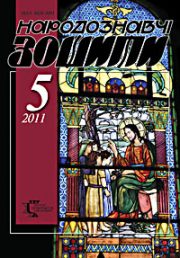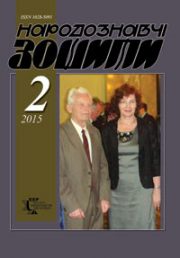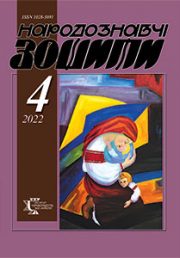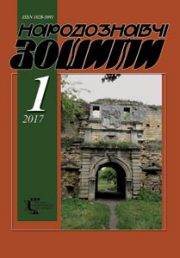The Ethnology Notebooks. 2018, № 4 (142), 787–816
UDK 123.1:124.2]:159.947.2
DOI https://doi.org/10.15407/nz2018.04.787
Received 12.06.2018
Kis Roman Yaroslavovych – Senior Researcher at the Institute of Ethnology of the National Academy of Sciences of Ukraine, departmeny of social anthropology.
Svobody Avenue 15, 79000, Lviv, Ukraine.
Contacts: Tel. (067)7117846; e–mail: Kholeryk@gmail.com
Abstrakt. The mystery of the man one can experience inside of the freedom. We can find it (the mystery of human being) in our essential potentiality to oppose, to resist (by means of the power of senses) the tortures and the death. In this connection Sartr has expressed the paradoxical opinion. We were never so free – the French philosopher has underlined – as we were during the german occupation. And we – ukrainians – were never so reunited and never having such a feeling of the strong identity as during the horrible modern Russian–ukrainian war (the personal freedom, the free choice and feeling of integrity are interdepended). So Sart’s article «The republic of silence» – it’s about us as well. Our national and our deep personal meaning of the war and the freedom are – using Hadamer’s terminology – the sense–generating «work of the life». The mediato ry function of the sensokinesis towards the intentional objects (as the founder of phenomenology Husserl has understood them) is the process by means of which our thougt, our patterns of thinking and just the very our cognitive possibilities of constructing objects (mentally and imagionationally) and the possibilities of «reconstructing» of the worldview becomes quete souvereign in ontic, souvereign in existentional and the spiritual dimentions. Besides our selfity it’s probably the main and the ontolologically basic and necessary prerequisite for establishing the freedom within us. Completely independent so called free choise does not exist at all. Firstly. So called free will is predetermined by the energy of sence–capital of the mine, by means of special sense–configurations and my (your’s, everyone single person) symbolical (psyhocultural) capital within us. Secondly. Our intentionality (including protentional presupposition of senses) may be pushed in certain «direction» by means of the spontaneous dinemycs of the sensokinesis. And for the third reason. So called free will may be rechanged and limited in the process of ambivalent and contraversive decision–taking under the influence of the convergence of the personal intracenses with the newgeneratet «third senses» and with the so called co–situational senses(the situational implications of senses) inside of the field of the interpersonal communication and the interactions (including theirs impornant discoursive dimentions). The changing conditions which are very often unespected and unpredictable and even the unespected changes in our experience (and the changes inside of the worldview) may be not overcomed by any means of our life efforts and our conscious behavioural acts. Very often no one`s free will can overcome those restrictions which are inside of us usually. It’s one of the reasos why it’s hard to carry the burden of the freedom and that one of the free choise. That’s why Nickolai Berdiayeff rather often told that freedom is hard and difficult. Even Jesus told that he was heavy laden in His mission to set people free (free in the spiritual sense).
Keywords: Spiritual Freedom, Ego–positions, Selfity, Sense–generating, Self–explication of freedom, Souvereignization of thinking , Free will, Free choice, Single personality.







